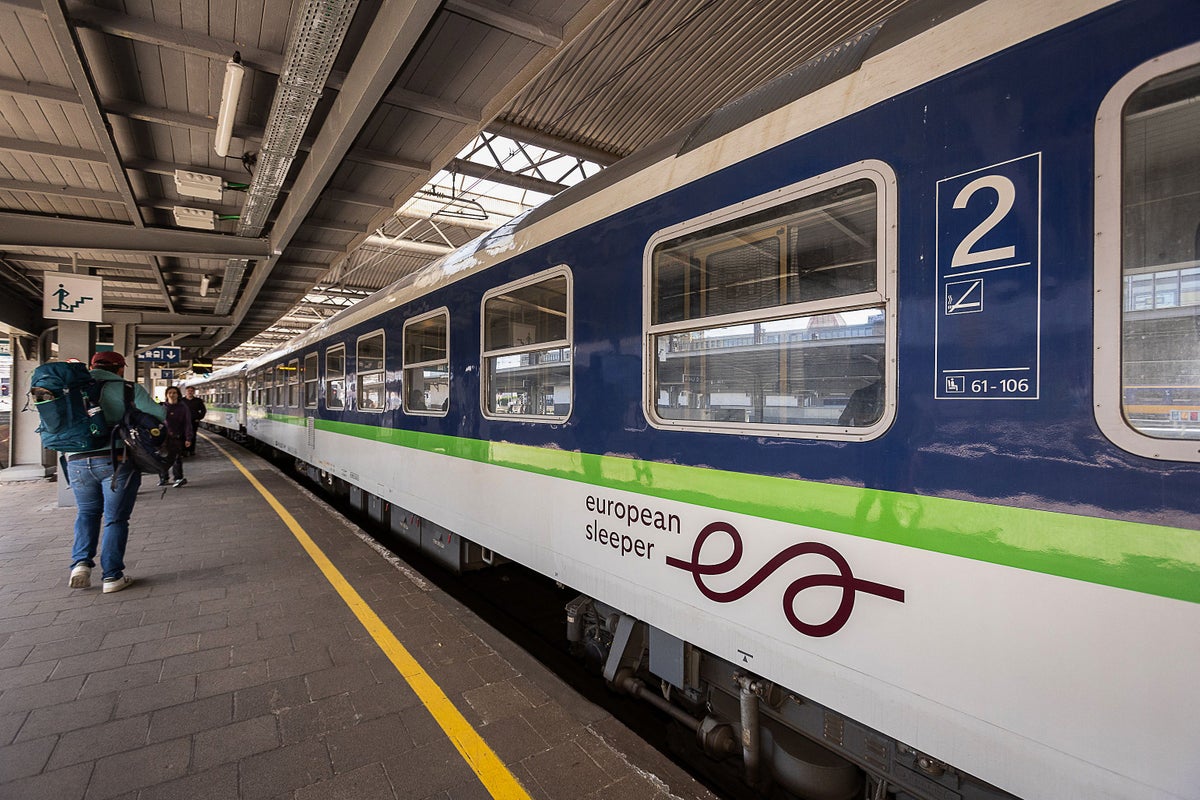
Passengers will be able to travel further on overnight rail journeys from next year, with Europe’s night train network set to expand.
Travellers can board a train in the Belgian capital, Brussels, or the Netherlands capital of Amsterdam, and wake up the next morning in Dresden, Germany, or Prague, Czech Republic.
European Sleeper, which launched a nocturnal connection between Berlin and the Dutch and Belgian cities in May, has confirmed the extension to its route will begin on 25 March 2024.
This means that travellers from London or Paris could reach Prague with just one transfer in Brussels. The service was meant to launch this year but major engineering works between Dresden and Prague led to the route terminating in Germany’s capital instead.
A newly released timetable shows passengers can leave Brussels just before 7.30pm and pull into Prague’s main station at around 11am the next morning, with departures on Monday, Wednesday and Friday. The return journeys depart on Sunday, Tuesday and Thursday.
With Eurostar’s current timetable, it means travellers from the UK could depart London at 3.04pm and arrive into Brussels at 6.05pm, with plenty of time to connect to the sleeper train and arrive into the Czech capital the next day.
European Sleeper is hoping to introduce even more routes from 2025, including an Amsterdam to Barcelona route.
The green credentials of travelling by night train have long been touted. Austrian firm OBB, Europe’s largest operator of night trains, said in 2020 that travelling between Vienna and Brussels by train emits 10 times less CO2 than the same journey by air, and Prague Morning reports that swapping planes for trains meaning emitting 28 times less greenhouse gases.
Last month, OBB announced that its Nightjet sleeper service between Paris and Berlin will start partially running again from December this year, making three trips a week, while the full daily service will be up and running by October 2024.
Meanwhile, French rail operator SNCF and its German counterpart Deutsche Bahn announced a direct high-speed service linking the two capitals in about seven hours, which should launch at the end of 2024.







